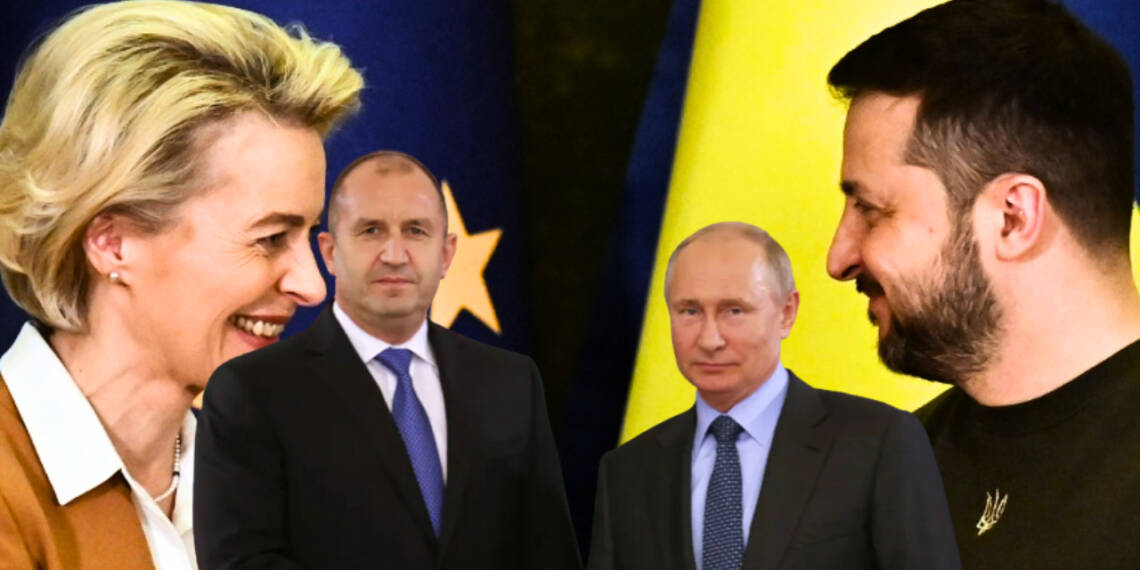In international politics, alliances and rivalries constantly shift, and hidden agendas lurk behind every decision. Such is the case with the recent explosion of ammunition warehouses owned by Bulgarian arms company EMKO.
This incident has unveiled a web of intrigue, shedding light on the internal divide within Bulgaria and its far-reaching consequences for the European Union (EU) and Ukraine.
The Internal Divider
Let’s delve into the backstory. The political landscape in Bulgaria is volatile, with the prime minister and president at odds over their allegiances. While the president leans towards Russia, the prime ministers align with the West.
This dichotomy has sparked fierce debates and power struggles within the Bulgarian government, leading to bitter confrontations.
The suspension of Russian gas by the Bulgarian government became a flashpoint for controversy. President Radev wasted no time attacking the move, accusing the government of working for foreign interests. He demanded answers from Former Prime Minister Petkov, specifically questioning why Russian authorities had halted gas supplies to Bulgaria.
In a defensive stance, Petkov claimed to be safeguarding Bulgarian interests and insinuated that Radev was merely a mouthpiece for the Kremlin.
Boom!
Against this backdrop of political tension, the explosion of the EMKO ammunition warehouses adds a surreal twist to an already convoluted narrative. The warehouses, targeted in a previous act of sabotage a year ago, belong to Emilian Gebrev, a renowned Bulgarian arms manufacturer and trader.
Gebrev survived an assassination attempt eight years ago, which the Bulgarian prosecutor’s office attributed to Russian military intelligence agents using a Novichok-like substance.

With a cloud of uncertainty hanging over the recent explosion, Gebrev expressed bewilderment at the events. “This is an inexplicably strong fire at midnight. The most important thing is that no one got hurt,” he remarked.
The warehouses contained materials for producing defense products, making the incident suspicious. Gebrev’s comments suggest that this could be another sabotage orchestrated by unknown actors.
Representatives of EMKO have reinforced this suspicion, drawing parallels to the previous sabotage incident. They argue that nothing within the warehouses could spontaneously explode, pointing the finger at deliberate sabotage. These explosions bear the hallmarks of a well-coordinated effort to disrupt Bulgaria’s arms exports, especially to Ukraine.
Bulgaria holds a significant position as one of the largest producers of Soviet-standard ammunition. Over the past year and a half, it has exported over $2 billion worth of weapons to Ukraine, albeit through intermediaries.
However, this lucrative trade has been a point of contention within the Bulgarian government and with President Radev. Pro-Russian forces argue that these exports constitute direct intervention in the war, a stance that aligns with the Kremlin’s interests.
Read more: LOL! Russia’s Wagner outsmarts the West on a Grand Scale
EU Faces Heat
The ramifications of these explosions go beyond the borders of Bulgaria. The internal divide within the country threatens to undermine the cohesion of the EU as plans to supply Ukraine with ammunition face a setback.

The EU’s delicate balancing act in managing relations with Russia and supporting Ukraine’s sovereignty is further complicated. The disruptive forces in Bulgaria could make future cooperation and decision-making within the EU even more challenging.
One thing is clear: this incident is unlikely to be an isolated event. The explosions are a stark reminder of the deep divisions within Bulgaria and the potential for further disruptions. As the rift between pro-Russian and pro-Western factions widens, the stability and unity of the EU hang in the balance.
The impact of these explosions reverberates far beyond the smoldering ruins of the ammunition warehouses, reminding us that clandestine schemes and political struggles have lasting consequences.
Read more: Biden’s “NATO arms production” push gets buried in Europe
In the uncertain landscape of international relations, one thing is sure: Bulgaria’s internal turmoil has struck a blow to the EU-Ukraine’s sneaky scheme, leaving it in disarray. As the smoke clears, it remains to be seen how this complex web of alliances, sabotage, and geopolitical power plays will shape the future of Bulgaria and the broader European theater.
Watch More:








